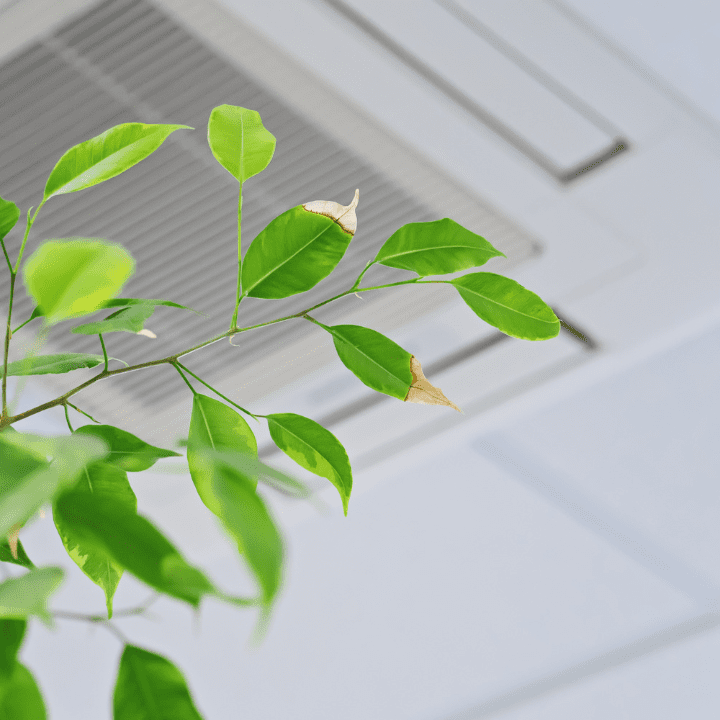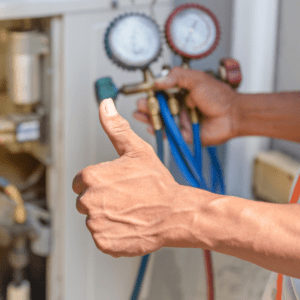
When most people think about the quality of air they breathe, they typically focus on the outdoors. However, the air inside your home can have just as much, if not more, an impact on your health and well-being. In fact, according to the Environmental Protection Agency (EPA), indoor air can be two to five times more polluted than outdoor air. Poor indoor air quality can cause various health issues, especially if your home’s HVAC system is not maintained properly.
This is where services like air conditioning repair and HVAC maintenance come into play. For residents in areas like McKinney, Frisco, Allen, and Anna, keeping your HVAC system in top condition is crucial not only for comfort but also for ensuring the air you breathe is safe and healthy.
Why Indoor Air Quality Matters
Indoor air quality refers to the condition of the air inside your home and how it affects your health and comfort. Poor IAQ is often caused by pollutants like dust, pollen, mold spores, pet dander, and even chemicals from household products. Without proper ventilation or filtration, these contaminants can accumulate, making your indoor environment hazardous to your health.
Health Effects of Poor Indoor Air Quality:
- Respiratory Problems
- Poor IAQ can exacerbate respiratory issues like asthma, bronchitis, and allergies. Contaminants such as dust, pollen, and pet dander can irritate the airways, causing symptoms like coughing, sneezing, and shortness of breath.
- Allergy Flare-Ups
- People with allergies are particularly vulnerable to poor indoor air quality. Common indoor allergens like mold spores and dust mites can cause allergy symptoms to flare up, leading to discomfort and health problems.
- Fatigue and Headaches
- Poor air quality doesn’t only affect your lungs. Contaminants like carbon monoxide and volatile organic compounds (VOCs) from cleaning products and paints can cause headaches, dizziness, and fatigue.
- Long-Term Health Risks
- Continuous exposure to poor IAQ can lead to more severe health problems over time, including chronic respiratory diseases, cardiovascular issues, and even cancer. The World Health Organization (WHO) has identified indoor air pollution as a major risk factor for long-term health complications.
How Your HVAC System Affects Indoor Air Quality
Your HVAC system plays a significant role in maintaining good indoor air quality. By filtering the air that circulates through your home, it helps remove harmful particles and pollutants. However, when your HVAC system is not properly maintained, it can become a breeding ground for mold, bacteria, and other contaminants that contribute to poor IAQ.
1. Air Filters: Your First Line of Defense
- Air filters trap dust, pollen, and other airborne particles before they can circulate through your home. However, when filters become clogged, they lose their ability to filter out contaminants effectively. Experts recommend replacing your air filters every 1-3 months to ensure proper filtration.
2. Air Ducts and Ventilation
- Your air ducts are responsible for distributing heated or cooled air throughout your home. If your ducts are dirty or leaking, they can introduce pollutants into your indoor environment. Regular duct cleaning and sealing can prevent this from happening, improving the air quality in your home.
3. Humidity Control
- Excess humidity can promote the growth of mold and mildew, both of which can negatively affect indoor air quality and cause respiratory issues. Your HVAC system should help regulate humidity levels, but if it’s malfunctioning, it could lead to poor IAQ.
Improving Indoor Air Quality with HVAC Maintenance
Regular HVAC maintenance is one of the most effective ways to improve and maintain your indoor air quality. Here are some important maintenance tasks that can help keep your system running smoothly and your air clean:
1. Regular Filter Replacements
- As mentioned earlier, changing your HVAC filters every 1-3 months is essential for keeping pollutants out of your air. This simple task ensures that your system continues to filter out harmful particles, providing you with cleaner air.
2. Schedule Professional HVAC Inspections
- To ensure that your HVAC system is operating efficiently and not contributing to poor air quality, it’s important to schedule regular inspections. A professional technician will check for any issues, such as clogged air ducts or malfunctioning components, that could be affecting the quality of your air.
3. Air Conditioning Repair Services
- If you’re experiencing issues with your air conditioning system, it’s crucial to address them as soon as possible. For residents in Texas, air conditioning repair is vital to maintaining not only comfort but also air quality. Whether you need AC repair in Anna, air conditioning repair in McKinney TX, air conditioning repair in Frisco TX, or air conditioning repair in Allen TX, don’t delay in seeking professional help. An inefficient or malfunctioning system can worsen air quality, making it harder for your HVAC system to properly filter and circulate clean air.
4. Duct Cleaning
- Dust and debris can accumulate in your ducts over time, reducing the efficiency of your HVAC system and contributing to poor IAQ. Professional duct cleaning can help remove these contaminants and prevent them from circulating through your home.
5. Install an Air Purification System
- In addition to regular HVAC maintenance, installing an air purification system can significantly improve your indoor air quality. These systems work in conjunction with your HVAC unit to filter out even the smallest particles, such as bacteria and viruses, ensuring cleaner air in your home.

Simple Steps to Improve IAQ at Home
In addition to HVAC maintenance, there are several simple steps you can take to improve indoor air quality in your home:
- Keep Your Home Clean
- Regular dusting and vacuuming can reduce the amount of dust and allergens in your home. Be sure to clean frequently in areas where dust tends to accumulate, such as carpets, curtains, and upholstery.
- Use Natural Cleaning Products
- Many household cleaning products contain harmful chemicals that can contribute to poor indoor air quality. Opt for natural, non-toxic cleaning products to reduce the amount of VOCs in your home.
- Ventilate Your Home
- Proper ventilation is crucial for maintaining good IAQ. Be sure to open windows and doors to allow fresh air to circulate through your home, especially when cooking or using chemical-based products.
- Monitor Humidity Levels
- As mentioned earlier, controlling the humidity in your home is essential for preventing mold growth. Use a dehumidifier in particularly humid areas, such as basements, to keep humidity levels in check.
Indoor air quality has a direct impact on your health and comfort. Whether you’re dealing with allergies, or respiratory issues, or just want to ensure a healthier home environment, paying attention to your HVAC system is crucial. By scheduling regular HVAC maintenance and addressing issues promptly through services like air conditioning repair, you can significantly improve the quality of the air in your home.
At ADON Complete Air Conditioning & Heating, we specialize in keeping your HVAC system running smoothly, ensuring that your indoor air remains clean and safe. Whether you need AC repair in Anna, air conditioning repair in McKinney TX, air conditioning repair in Frisco TX, or air conditioning repair in Allen TX, our expert technicians are ready to help. Contact us today to schedule your HVAC maintenance and breathe easier in your home!
Debunking Common HVAC Myths for Better Home Comfort » « How to Improve Your AC’s Efficiency and Lower Your Energy Bills






